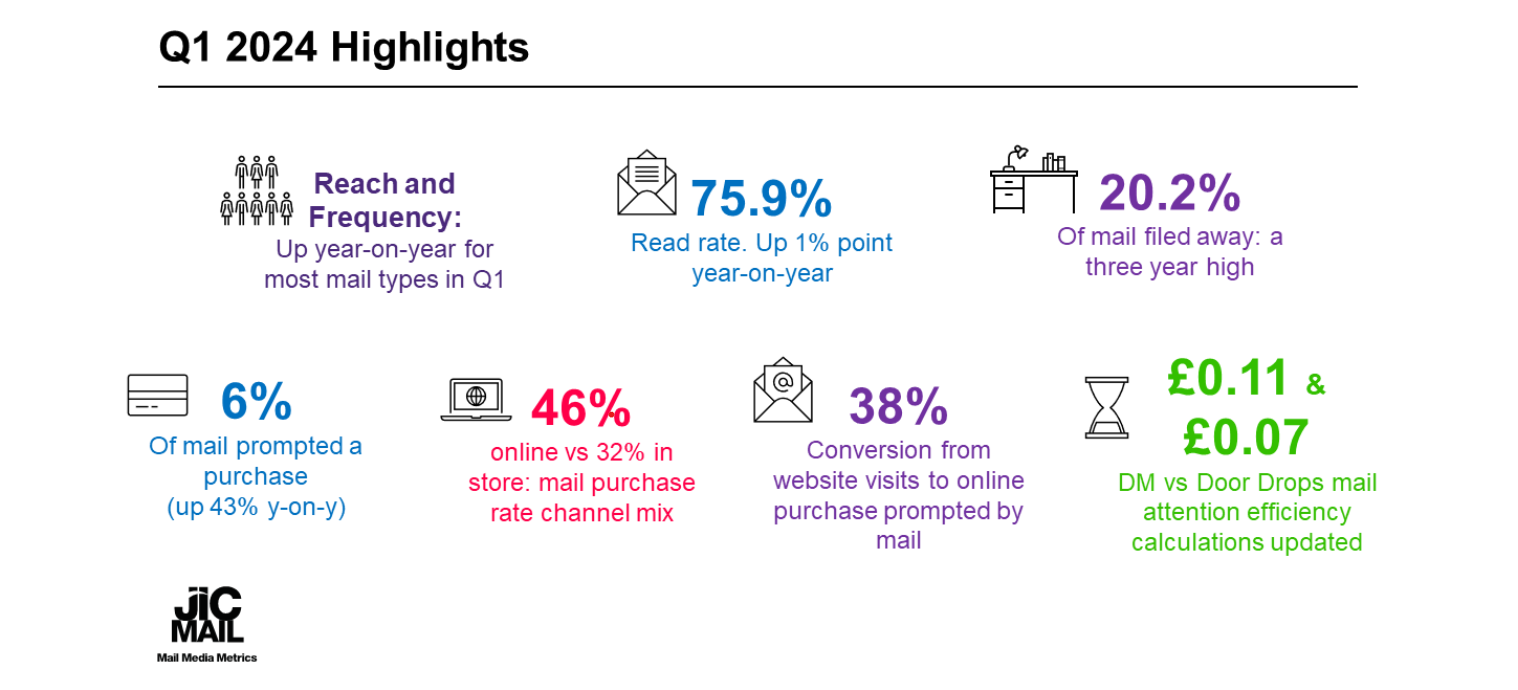Direct mail now more impactful than ever!
The latest quarterly results from JICMAIL reveal another surge in the effectiveness of mail marketing in Q1 2024. The research finds that six percent of all mail types prompted a purchase, two percent higher than the same period in 2023. This increase underscores the growing impact of mail in driving consumer actions, with 46% of these purchases fulfilled online and 32% in-store, reflecting the omnichannel nature of mail. Increasing Mail Interaction and Attention Direct Mail, Door Drops, and Partially Addressed Mail saw a year-on-year increase in interaction frequency, resulting in more ad impressions in Q1 2024 compared to the previous year. Mail's attention efficiency stands out, with Direct Mail garnering 134 seconds of attention per piece across household members over [...]









